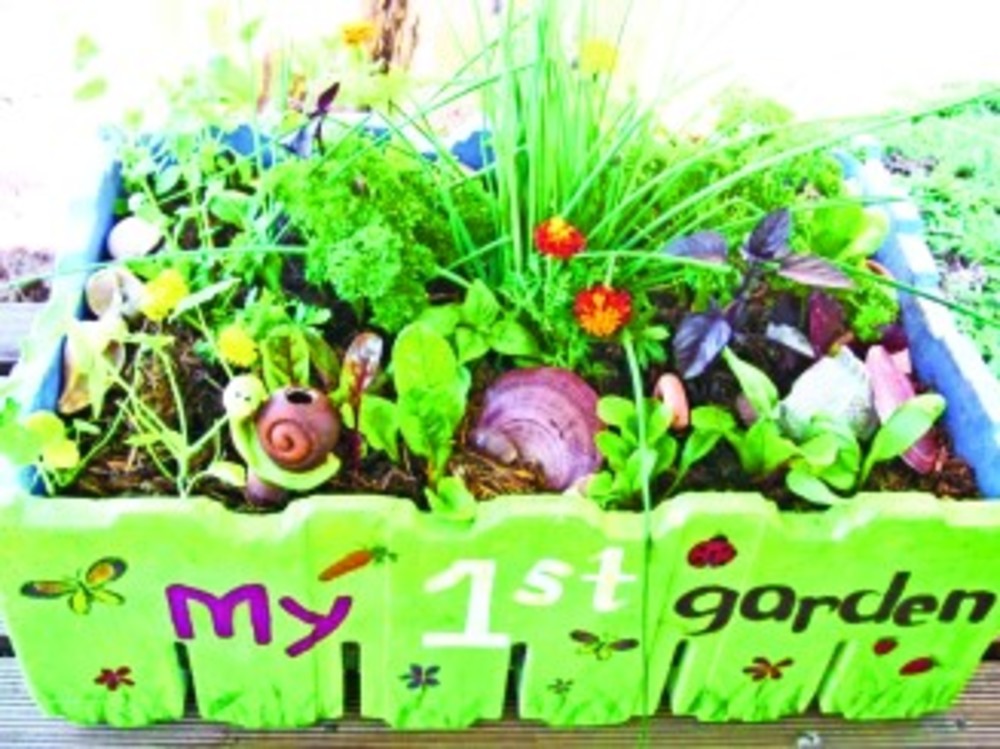Benefits of indoor gardening
Helping children gain a greater appreciation of nature and their roles as “shomrei adamah” (earthkeepers)
 By introducing young children to the fascinating world of gardening and to the intricacies of nature, you will open their worlds to new ideas and experiences. Children are natural gardeners–they are naturally curious, they want to be involved and they like to learn by doing. Working in a garden, a child can experience the satisfaction that comes from caring for something over time, while observing the cycle of life firsthand.
By introducing young children to the fascinating world of gardening and to the intricacies of nature, you will open their worlds to new ideas and experiences. Children are natural gardeners–they are naturally curious, they want to be involved and they like to learn by doing. Working in a garden, a child can experience the satisfaction that comes from caring for something over time, while observing the cycle of life firsthand.
Children understand the rock lying on the ground saying, “Pick me up and see what is under me.” They understand the ladybug that pleads, “Let me crawl on your arm and tickle your skin.” And it will not be long before they understand the tiny seed that says, “Plant me and see what I can do” or the resulting plant that says, “Look at what you’ve done and feel proud.”
Gardening offers everything an educator/parent could want when developing activities to draw children into their world. It provides opportunities for children to develop socially and emotionally, individually and as a community. The work involved in gardening supports children’s physical development, nourishes all their senses, and helps them learn to slow down and observe carefully.
We encounter an appreciation for nature daily in our Jewish living as one of the themes in Jewish living is to live with a sense of wonder. Blessings and prayers are ways that traditional daily practice guides us toward wonder and the daily psalms are filled with nature and appreciation. Taking time to join children and explore the wonder with them and building from an early age, the habit of uttering words of appreciation for beauty, is a very Jewish thing to do. It provides children with a ‘language’ to share wonder together with you.
Here are the benefits of indoor gardening for your children:
1. Understanding the world – Young children have one primary goal in their young lives – to understand the world around them. For better or worse, much of this understanding comes in the form of restrictions – learning what not to do so as to avoid injury, learning how not be inconsiderate of others, and so forth. Indoor gardening provides a new type of worldly understanding that is “expansive” rather than constrictive. Indoor gardening has the potential to be an empowering experience. For this to happen, it is necessary for children to take as active and participatory a role as possible in developing and maintaining their gardens.
2. Developing self-esteem – Young children are developing the identities they will carry with them throughout their lives. Some researchers claim that people’s entire personalities develop by the time they are five years old. Whether this is accurate or not, it is clear that children deserve to develop identities that are based on self-pride and self-esteem. Indoor gardens provide an ongoing experience of pride, mixed with awe and wonder, with children seeing the effect of their care on the growth of their plants.
3. Enjoying education – Fun and curiosity are the two primary motivators of young children’s learning. Parents and early childhood educators understand that young children learn better when they are having fun and enjoying their learning. Indoor gardens are fun, and they excite children’s natural curiosity.
4. Appreciating and loving nature – Indoor gardening, especially when supplemented with outdoor walks and nature experiences, leads children to develop far greater appreciation and love for the natural world. These feelings are pre-requisite to the later development of Jewish identity that embraces the Torah’s view of people as shomrei adamah, “stewards of the earth.”
5. They can do this any place, any time – Last but not least, indoor gardening is an activity children can do regardless of their location or the time of the year. They can do it during school or at home during winter break. They can do it as a class, alone with you or as an activity with friends.
GABE GOLDMAN is the Director of Experiential Education and CAROLYN LINDER is the Director of Early Childhood, Israel, and Educational Resources at the Agency for Jewish Learning in Pittsburgh, Pa. Excerpted from AJL’s “Guide for Making Indoor Gardens with Young Jewish Gardeners” and reprinted with permission. To download the complete guide, visit ajlpittsburgh.org.







